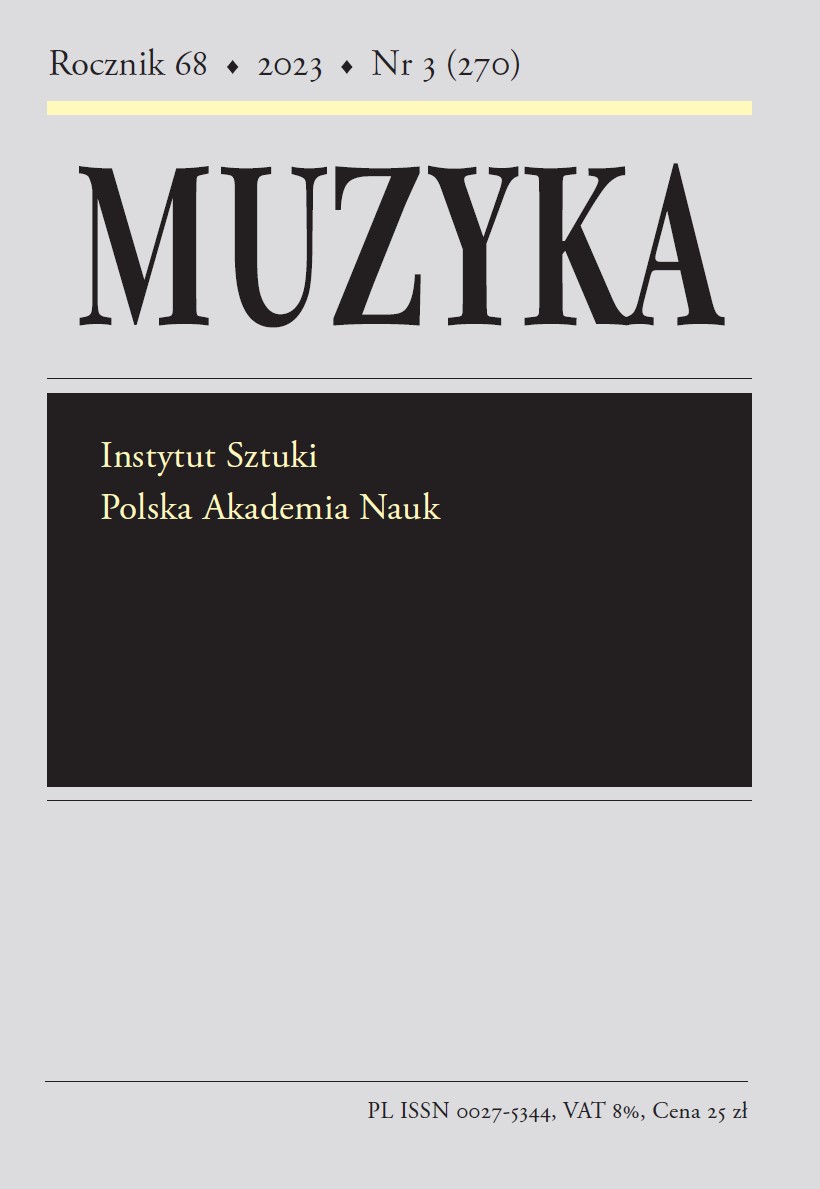„Żądny wieńca Apollona”. Michał Kazimierz Ogiński jako muzyk w l. 1748–1761
‘Craving Apollo’s Laurels.’ Michał Kazimierz Ogiński as a Musician in 1748–1761
Author(s): Irena BieńkowskaSubject(s): Music
Published by: Instytut Sztuki Polskiej Akademii Nauk
Keywords: Michał Kazimierz Ogiński;Warsaw;Berlin;Paris;amateur music-making;the cantata La nascita di Amalia;violin playing;single-action pedal harp
Summary/Abstract: Michał Kazimierz Ogiński’s music performances are mentioned in fragmentary accounts from different periods of his musical activity. This paper is an attempt to collect and organise data concerning the performances he gave in his youthful years, including his grand tour of 1753–61. The surviving score of Friedrich König’s cantata La nascita do Amalia of 1750, in whose Warsaw production the prince took part as the first violinist, proves that his violin skills were considerable already before he set out on his foreign tour. Following his departure from the Polish-Lithuanian Commonwealth, most information concerns the year 1755 and early 1756, when he stayed in Berlin. Sources confirm that the prince performed music regularly, mostly on the violin and the new single-action pedal harp, which he promoted on many occasions, for instance at the court of Frederick II and later during his residence in Paris. The more than five years Ogiński spent in France are much more poorly documented as far as his music-making is concerned. It was at that time that Italian composers staying in Paris dedicated two prints to Ogiński: Carlo Graziani – his Sei Sonatas a Violoncello solo e Basso, Op. 1, and Gaetano Pugnani – his Six pieces à plusieurs parties obligez. Especially this latter print, complete with a dedicatory epistle, confirms contacts between Ogiński and Pugnani and makes us revise the list of music masters whose advice the prince may have followed as a musician. Contacts with Denis Diderot in Paris resulted in Ogiński being invited to write the entry on the ‘Harp’ in the famous Encyclopédie, whose publication popularised the new type of this instrument in France in the latter half of the eighteenth century. Ogiński’s lifelong activity as a musician, combined with his charisma and political position, significantly contributed to overcoming the negative image of high-born amateur musicians from the Commonwealth and paved the way to a greater musical activity among noble composers and performers in the century to come.
Journal: Muzyka
- Issue Year: 68/2023
- Issue No: 3
- Page Range: 50-66
- Page Count: 17
- Language: Polish

